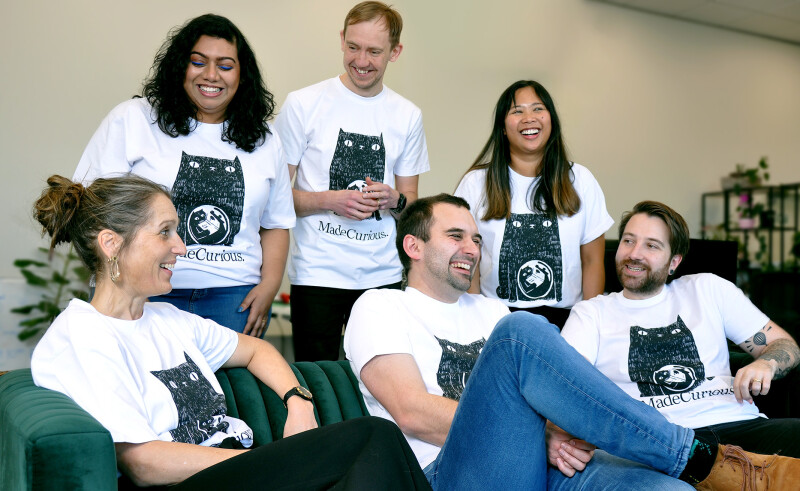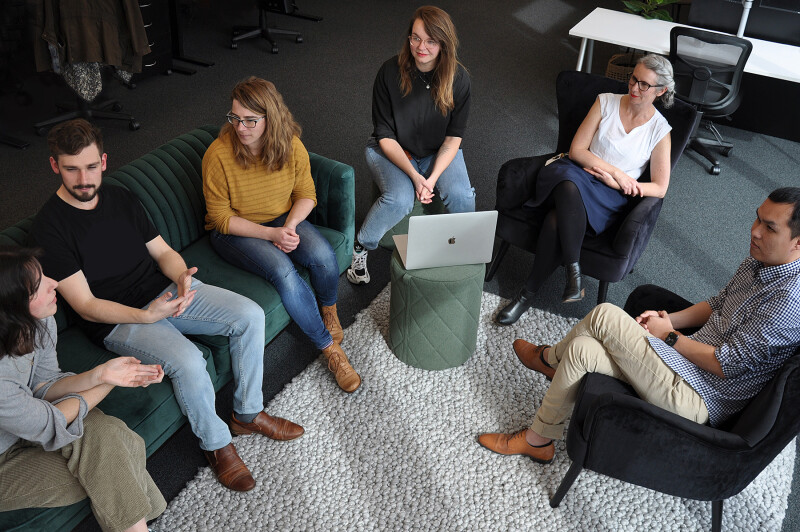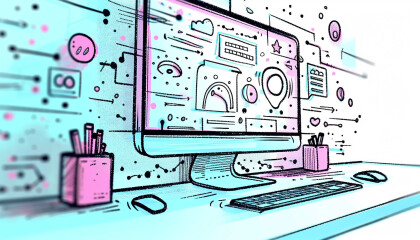Technology is going to remain a significant part of our lives as long as we remain on this Earth, and it continues to be an expanding, high-earning industry for Aotearoa. The Ministry of Business, Innovation and Employment reports:
“In 2021, the digital technologies sector contributed $7 billion towards New Zealand’s GDP and, since 2016, has grown at twice the annual rate of the wider economy.”
Let that sink in a minute - twice the annual rate of the wider economy - what this means is, not only do we have some killer innovation happening here, there are also a heap of opportunities to get involved. Yet, even in a time when the sector is desperate for skilled workers, women make up only 23% of IT professionals in this country. If we could encourage more women to work in tech, my guess is we could encourage even more growth in this sector.
There’s also a bunch of other benefits to encouraging more women into technology.
When You Include Different People, You Start to Reduce Bias
It’s a fact that humans subconsciously favour what we are comfortable and familiar with, it’s called the Mere Exposure Effect, and this can (and does) lead to bias and poor-decision making in the development of products, tools and services.
By having women on board within the core analysis, design, and development team, it effectively reduces biases embedded in the resulting technology. Women bring fresh perspectives and unique experiences to the table, challenging any existing prejudices. This collaborative effort can result in products, tools, and services that embrace a more inclusive worldview, ultimately boosting the quality, reliability, and safety of the technology at hand. And that’s got to be good for the people using it!
Increasing Gender Diversity Is Great for Teams
Just as with the trades, technology has been a typically male-dominated industry (at least from around the 80s) so encouraging more women into the technology workforce will help to create more balance in the industry. This not only gives men more opportunity to work with others who are not like them, it creates opportunities to include more diverse perspectives, broaden innovation and profitability.

No Computer Science Degree? No Problem!
As technology has transitioned from office basements to people's pockets, its user base has widened to diverse horizons. Alongside this shift, the roles and skills essential for crafting successful tech products, tools, and services have also evolved.
While traditional software engineering positions continue to remain relevant and necessary (and it's important to encourage more women to explore these paths too), today's landscape offers a broader spectrum. Women can now venture beyond coding into roles like business analysis, UX/UI research and design, project management, service design, quality assurance, and more. The key point to remember is that these roles don't necessarily require an extensive computer science degree to excel.
Transferable Skills, for the Win!
With the continuous evolution of technology comes a demand for an array of diverse skill sets, a shift in mindsets, and the knack for adaptability—a reimagining of what "work" entails.
In this landscape, women, especially those re-entering the workforce after a break for parenting, naturally exhibit the flexibility needed. Among their strengths are exceptional time-management skills and adept problem-solving abilities. Additionally, women often bring a remarkable emotional intelligence to the table, fostering empathy and nurturing robust workplace relationships.
Employers are progressively recognising the value of prioritising mindset and transferable skills over rigid adherence to selection criteria. This shift provides women returning to work with genuine opportunities to explore roles from fresh perspectives and embrace the unfamiliar. This approach, while also addressing the ever-increasing skills gap in the technology sector, is a win-win scenario.
Women Have a Different Leadership Style - And It’s a Good Thing
A clear benefit of achieving more balance in the industry? Bridging the gender gap in leadership spots.
But it's not just about having women at the helm – they become visible trailblazers for fellow women and anyone embracing diverse gender identities. And here's the bonus: research shows that when women lead the charge, they can reshape a company's culture by championing inclusivity and fairness. With women in charge, you get fresh perspectives, collaborative leadership that's all about teamwork, and an atmosphere that sparks innovation and lifts the whole team's energy. And the best part? This magic isn't limited to tech; it's an across-the-board phenomenon.

The Old “Rules” No Longer Apply
Every woman stepping into or continuing a tech career is, by simply being there, dismantling the old stereotypes about “who belongs in this field”. These women serve as living proof that tech isn't a one-size-fits-all domain. They're more than professionals; they're vital role models for young girls and women, offering a wellspring of inspiration for those curious about STEM (Science, Technology, Engineering, and Mathematics). Here in Aotearoa New Zealand, we've got shining examples – Vanessa Sorenson leads Microsoft Aus/NZ, Delphine Ducaruge chairs NZ Tech, and a growing crew of female entrepreneurs are diving into the tech startup scene.
And guess what? It's not a solo journey. Networking and support platforms, like Women in Technology groups and events, mentoring and coaching, are far more prevalent – and for good reason. They empower women to own their professional and personal growth, carving their paths as they advance in their careers.
Leading by Example
The fabulous women at MadeCurious hold a myriad of positions including:
- Board members
- General manager
- Head of delivery
- Service delivery manager
- Finance director
- Support desk analysts
- Project leads
- Partner outcomes managers
- Facilitators
- Software engineers
- Business analysts
- User Experience researchers & designers
We're a diverse bunch, hailing from all corners and walks of life. Some of us boast computer science degrees or have powered through intensive development boot camps. On the flip side, some bring backgrounds in health, law, arts, or even arrive without formal education. The beauty? Our paths have wound through a myriad of industries before converging here.
The big shared trait among all of us, which truly deserves the spotlight, is we are curious and we are smart: we're all about asking the right questions and fuelled by a passion for Building the Right Thing, something that is meaningful, and accessible to everyone.














